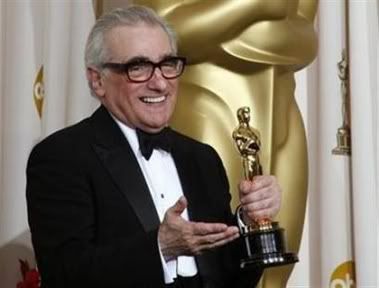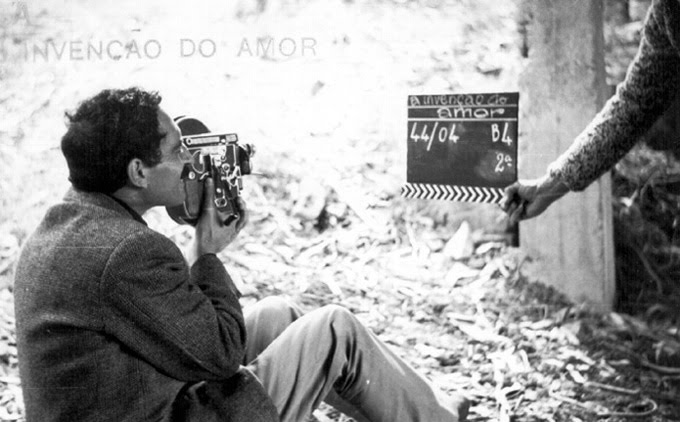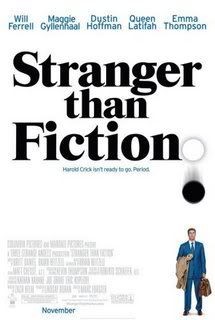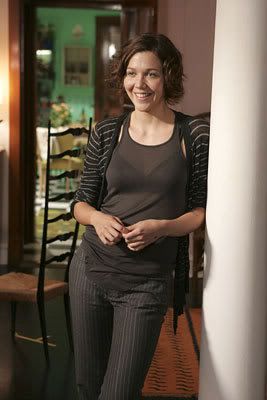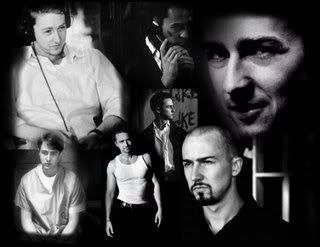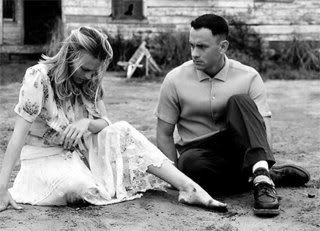Women Acting Badly
An adulteress, an evil boss, an emotional predator: Our reporter on why mature, flawed and powerful women are at the center of this year's Oscar race
Judi Dench has played some dark characters in her time, but few have been as toxic as Barbara Covett in "Notes on a Scandal." A dour schoolteacher with a bad haircut and thick ankles, Ms. Covett describes herself as "chronically untouched" as she prowls after a younger female colleague. She refers to a portly colleague as a "pig in knickers," and confides in a voiceover: "Lasagna tends to disagree with my bowels."
Ms. Dench's diabolical character is in good company. She is one of five Academy Award contenders for best actress in a field dominated by women behaving badly. From the bitchy fashion editor depicted by Meryl Streep in "The Devil Wears Prada" to Kate Winslet's adulterous wife in "Little Children," this year's nominees depict women who are flawed, sharp-edged and often morally unattractive. Perhaps most uncharacteristic for Hollywood, three of the best actress nominees are in the AARP demographic -- Ms. Streep is 57 years old, Helen Mirren is 61 and Ms. Dench is 72.
The year's field is a sea change for an industry that has been criticized for relegating women to roles that are secondary, docile and often younger than 40. The Academy Award for best actress is nearly always reserved for something more traditional. In the past 20 years, the winners have included lightweight romantics (Gwyneth Paltrow in "Shakespeare in Love"), heroines (Julia Roberts in "Erin Brockovich") and sympathetic crusaders (Susan Sarandon in "Dead Man Walking").
This year's ladies are in a beastly league of their own -- starring as the powerful centerpiece of women-driven movies. The best-actress rivals also include Penélope Cruz in "Volver," a portrayal of a working-class mother who covers up the murder of her husband by dumping him in a freezer. The favorite is Ms. Mirren, who plays Elizabeth II in "The Queen": She depicts a stern monarch who is determined to maintain a stiff upper lip after Princess Diana's death, despite criticism from the British public that she was cold and unfeeling.
The parts reflect audiences' desire for a greater sense of reality and complexity in movie roles. As Hollywood has struggled in recent years to draw crowds for its high-budget and often formulaic "popcorn" movies, audiences have shown they're more receptive to edgier stories and unflattering characters, filmmakers say. They also say viewers want to see women playing roles long reserved for men.
Looks Like the Queen
That has filmmakers courting a pool of talented leading actresses, many of whom came to fame in the 1960s and 1970s and are eager to take on more challenging characters. Writers are creating roles specifically for them. "The Queen" was developed after one of the producers noticed how much Ms. Mirren looked like Queen Elizabeth II.
"Filmmakers are writing roles for women that don't fit into the standard boxes of romantic comedy or sidekick to the male lead," says Amy Israel, head of production and acquisitions at Paramount Pictures' specialty arm Paramount Vantage, who has a number of movies starring strong, aggressive females rolling out this year.
There have been such roles before, of course. In 1950, Bette Davis rocked Hollywood with her gritty performance as an aging actress in "All About Eve." Ms. Davis was in her 40s and had long complained about being considered a Hollywood has-been. The same year, Gloria Swanson made a splash with her role as a washed-up movie star in "Sunset Boulevard." At the 1991 ceremony, Kathy Bates's obsessive wacko in "Misery" trumped Ms. Roberts's hooker-with-a-heart-of-gold in "Pretty Woman." More recently, Charlize Theron received a nod for her fierce prostitute-turned-serial killer in "Monster." But rarely has there been such a concentrated group as this year's Oscar bunch.
Audiences can expect to see more of the same. Ms. Mirren is expected to return in "Angel Makers," about women turning murderous in a British farming community after falling for German POWs while their husbands are at war. Nicole Kidman and Jennifer Jason Leigh act out a thorny relationship between sisters in "Margot at the Wedding." In "The Other Boleyn Girl," Natalie Portman plays the ruthless and scheming Anne Boleyn, who steals King Henry VIII from her pregnant sister Mary. Viewers will also see another familiar name, Julie Christie: In "Away From Her," she plays a woman with Alzheimer's who torments her husband by falling for a wheelchair-bound mute.
It's a shift from the conventional wisdom of even a few years ago, that Oscar-hungry actresses should play victims or heroines with unassailable morals. Ms. Winslet herself spoofed the stereotype in a guest turn in 2005 on HBO's "Extras," a comedy about actors' behind-the-scenes life. Ms. Winslet figures she's a shoo-in for a statue for playing a pious nun in a World War II film. "If you're doing a film about the Holocaust, you're guaranteed an Oscar," she says. Later in the satire, she sees a girl with cerebral palsy and advises another actor to take note. "That is another way you win," the character says. "Daniel Day-Lewis in 'My Left Foot'? Oscar. Dustin Hoffman, 'Rain Man'? Oscar."
Patrick Marber, who adapted "Notes on a Scandal" for the big screen, says audiences are bored with the artificial perfection that Hollywood has historically portrayed. "Audiences don't want the defanged version," he says. When it came to the role of Ms. Covett, Mr. Marber didn't hold back. Instead, he ramped up the character from the Zoë Heller bestseller. "She's white-hot vicious," says the writer, who is nominated for his screenplay.
Ms. Dench didn't hold back on the physical transformation, either. In one scene, she's shown slumped in a bath, her flabby, liver-spotted arms rolling over the top of the tub, as she draws on a cigarette. Ms. Mirren, meanwhile, layered on the wrinkles, padding and dowdy outfits. The most striking scene in "The Devil Wears Prada" shows Ms. Streep's character -- the haughty, controlling and immaculately turned-out editor of a fashion magazine -- looking haggard and devoid of makeup after learning that her latest husband wants out of the marriage. Ms. Cruz filled out her behind with padding and takes on an "ugly beautiful" appearance. Even Ms. Winslet's afternoon lover in "Little Children" describes her as having eyebrows that are too thick and a far-from-perfect body.
"Babel" scribe Guillermo Arriaga says moviegoers are drawn to complex, too-human characters as their real lives become more sanitized -- meeting people online instead of in person, for example, and becoming detached from how their food is raised. "People are hungry for real human experience," says the Mexican-born writer, who is nominated for his screenplay. He believes viewers still want to feel a sense of hope but they're willing to go to "dark places" to get there.
Other factors may have prepared viewers for imperfection. The boom in reality TV shows -- such as "Beauty and the Geek," in which socially challenged men humiliate themselves in learning how to win over women -- has shown that unflattering characters sell. The rise of DVDs, especially through Netflix, has boosted audience sophistication by making more movies available to more people. And studios have perfected their indie-movie marketing chops, becoming adept at selling tougher material.
Politically Incorrect
The fact that many recent women-driven movies don't follow the so-called feminist narrative seen in 1970s movies such as "Alice Doesn't Live Here Anymore," which portrayed strong women improving their lot in life, also suggests an evolution in the female role in cinema, says Linda Williams, a professor of film studies at University of California at Berkeley. In "Little Children," for instance, Ms. Winslet's character doesn't break free of her unhappy life. Instead, she returns to it. Similarly, Ms. Dench's role as a scheming, repressed lesbian would have been deemed politically incorrect 20 years ago. Now it is simply "complex."
Still, there's a Hillary Clinton aspect to these roles: A more empowered female audience wants to watch empowered women. Interestingly, men do, too. "These are strong, powerful, edgy, opinionated women," says producer Beau Flynn. "Guys find that sexy." Adds Mr. Marber: "Men enjoy watching the active, protagonist women more than the passive weepers."
This year's field also is a shift for female actresses who have long complained they couldn't find decent roles once they hit 50. "The baby boom is hitting 60," says Robert Sklar, professor of cinema studies at New York University. "It's partly demographic but this is a group that is also particularly self-aware -- narcissistic, some would say -- and they're interested at looking at themselves in movies as older people."
Laura Carstensen, professor of psychology and director of the Stanford Center on Longevity, notes that an aging population is naturally more female skewed. Older people also look for something different in their entertainment. "People's motivation changes as they age," she says. "They look for more meaning."
The Academy is aging as well, which could work in older actresses' favor. Still, Ms. Dench may not relish her chances against Ms. Mirren, who has walked away with the usually predictive Screen Actors Guild award. Ms. Dench is having an operation on her knee and won't be attending the awards ceremony this weekend.
By Merissa Marr, The Wall Street Journal
February 23, 2007
